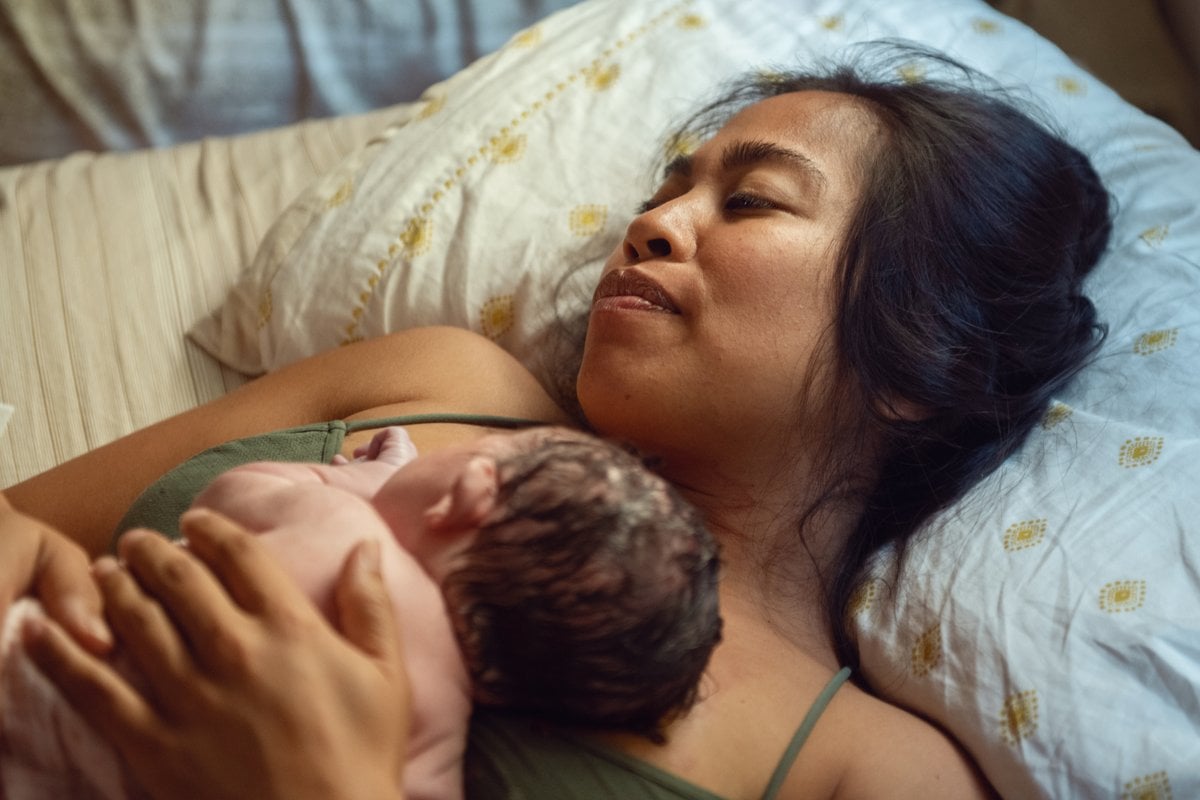
It was 20 years ago when I first watched the episode of Friends where Rachel gave birth. It ended beautifully with Rachel holding her in her arms, looking lovingly and adoringly at her new daughter.
I thought that would happen when I gave birth, that I would immediately fall in love with my daughter.
I was wrong.
Watch: The facts on postnatal depression. Post continues below.
First, there was no pushing because I had an emergency c-section. I held her in my arms and sobbed deeply as I was completely sleep-deprived from having been in labour for almost 36 hours. I was emotionally overwhelmed, physically exhausted, and mentally drained. That magical, instant connection I had seen in all those movies and TV shows while I was growing up did not happen for me.
I looked into her piercing dark eyes and it felt like an alien was cradled in my arms. I didn’t know how to hold her, squirming, wriggling, as fragile as a baby hummingbird. I was afraid of hurting her. My shoulders were tense as I focused all my attention on supporting her neck. Her tiny, sharp fingernails clawed at my breasts. I was uncomfortable and disappointed in myself.
My pregnancy is over. She is out. I am a mother now. How come I don’t feel like one?




























































































